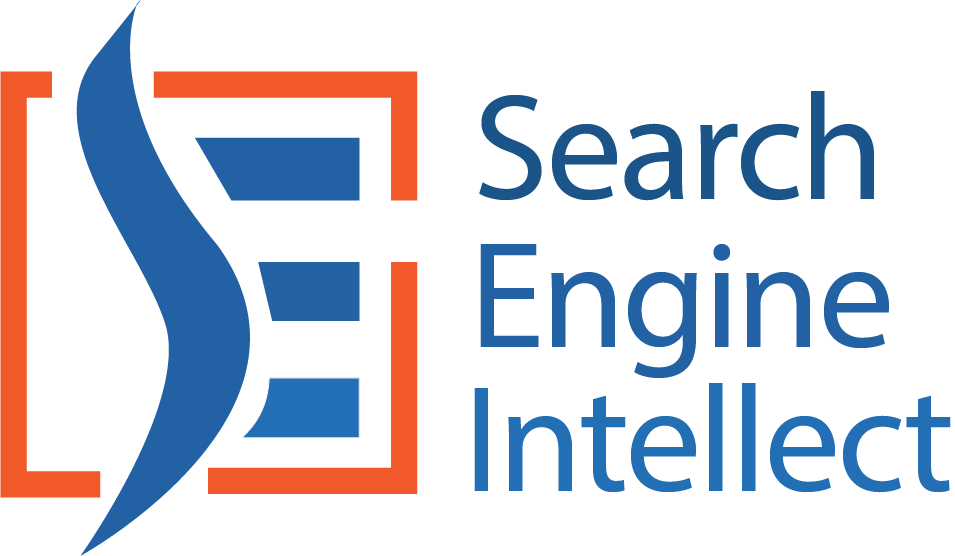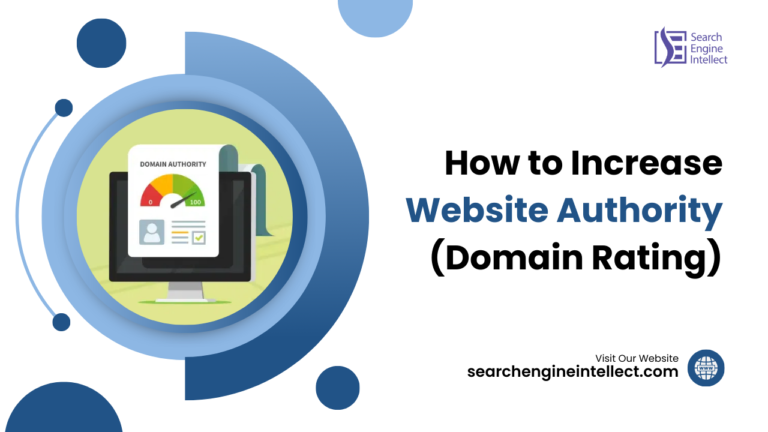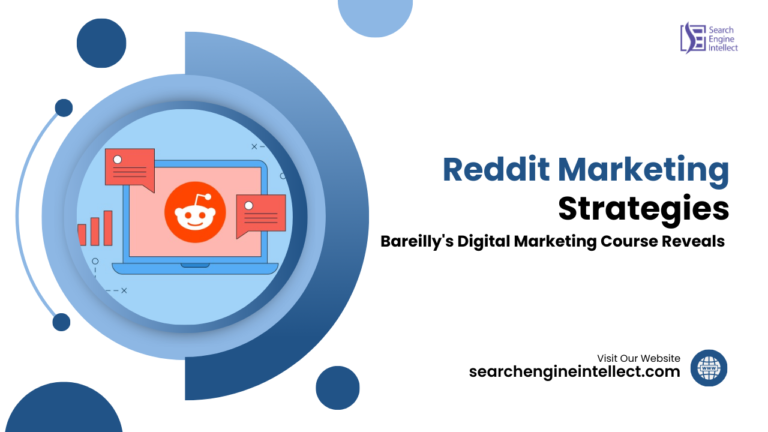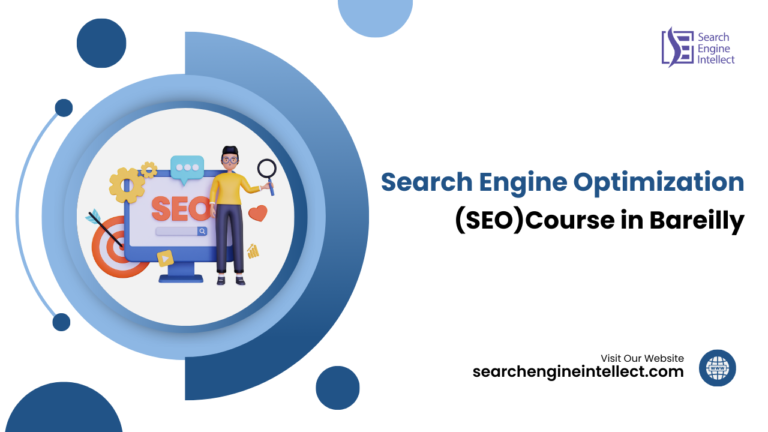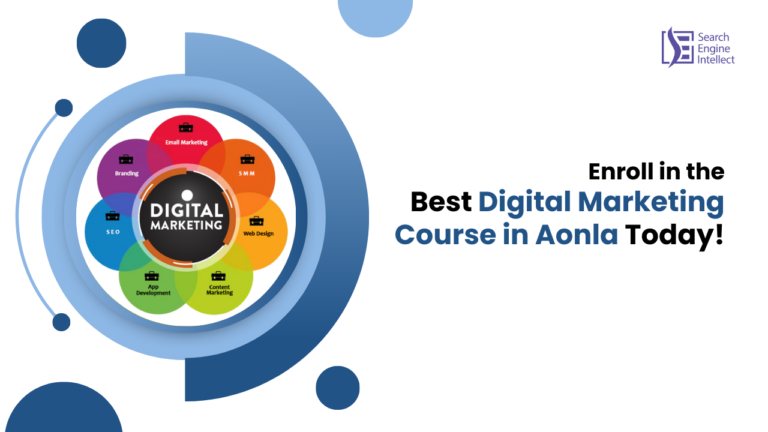Is SEO a Good Career in 2026? Job Outlook, Demand & Growth
Table of Contents
Book a Free Demo Class

Is SEO a Good Career? Pros, Growth & Real Insights
SEO has become one of the most in-demand digital skills as businesses compete for visibility in Google and AI-powered search engines. With the rise of tools like ChatGPT, Gemini, and voice search, many people now ask a crucial question:
Is SEO a good career in 2025 and beyond?
The short answer is yes — but only if you understand how SEO is evolving.
SEO as a career is no longer limited to ranking websites on Google. It now includes AI search optimization, GEO (Generative Engine Optimization), AEO (Answer Engine Optimization), and local search visibility.
Whether you are a student, fresher, or working professional planning a career switch, SEO offers strong job opportunities, flexible work options, and long-term growth.
In this guide, we’ll explore SEO as a career option, job outlook, demand, and whether becoming an SEO specialist is still worth it in the AI-driven era.
Also read: SEO, AIO, GEO, AEO, SXO: What’s the Real Difference?
What Is SEO as a Career?
SEO as a career means helping websites rank higher in search engines by improving content quality, technical structure, user experience, and authority signals. The main goal is to increase organic visibility and attract the right audience without relying only on paid ads.
In today’s AI-driven search landscape, SEO professionals do much more than traditional optimization. Their work directly impacts how brands appear in both Google Search and AI-powered search platforms.
SEO professionals typically work on:
- Analytics and performance tracking – measuring traffic, conversions, and growth
- Google Search results – improving rankings for relevant keywords
- AI search answers – optimizing content to appear in ChatGPT, Gemini, and other AI responses
- Local search (GEO) – helping businesses rank for location-based searches
- Content optimization (AEO) – creating answer-focused, structured content
SEO as a career focuses on organic growth across search engines and AI platforms.
Also read: Enroll in the Best SEO Course Today!
Why Choose SEO as a Career?
Many people choose SEO as a career option because it offers long-term growth, flexibility, and strong demand. Here are the main reasons.
1. High Demand for SEO Professionals
Every business wants visibility in Google and AI search results. Organic traffic drives leads and sales.
That’s why there is a constant demand for SEO professionals across:
- Startups
- E-commerce brands
- Agencies
- SaaS companies
- Local businesses
Every business wants visibility. Organic traffic drives leads, sales, and trust. That’s why SEO is no longer optional. It’s a core growth channel.
2. SEO Skills Are Future-Proof
SEO evolves with technology. It doesn’t get replaced by it.
Modern SEO includes:
- AI SEO
- GEO (Generative Engine Optimization)
- AEO (Answer Engine Optimization)
Professionals who adapt to AI-driven search stay relevant and in demand.
3. Low Entry Barrier
You don’t need:
- A technical degree
- Expensive certifications
You need:
- Practical skills
- Learning mindset
- Real project experience
This makes SEO a good career for freshers and career switchers.
4. Multiple Career Paths
SEO gives you flexibility. You can choose how you work.
Career options include:
- Full-time SEO job
- Freelancing
- Agency work
- Consulting
- Building personal or niche websites
Few careers offer this level of freedom.
Is SEO in Demand in 2026?
Yes, SEO is in high demand in 2026.
Search behavior has changed, but the need for SEO has grown even stronger. Businesses still depend on trusted, well-optimized websites to appear in both Google results and AI-powered search answers.
Why SEO Demand Is Growing
- AI search relies on trusted web sources
Tools like ChatGPT and Gemini generate answers using high-quality, authoritative content from the web. - Brands need visibility in AI answers
Businesses now optimize not just for Google, but also for AI-generated responses and citations. - Paid advertising costs keep increasing
Rising CPCs make organic SEO a more cost-effective long-term strategy. - Organic traffic delivers long-term ROI
SEO continues to bring consistent traffic without ongoing ad spend. - SEO is now a core growth channel
It’s no longer optional. SEO is a foundational part of digital growth strategies.
As search evolves, SEO professionals are more valuable than ever – especially those who understand AI SEO, GEO, and AEO.
SEO Specialist Job Outlook
The SEO specialist job outlook from 2025 to 2030 is strong and positive. As search engines evolve with AI, businesses still rely heavily on organic visibility to attract customers, generate leads, and build trust.
Why the SEO Job Outlook Is Strong
1. Businesses Depend on Organic Growth
Paid ads are getting more expensive every year. Companies want long-term, cost-effective traffic. SEO delivers consistent organic growth, making SEO specialists essential for business success.
2. AI-Generated Answers Still Need Source Websites
AI tools like Google SGE, ChatGPT, and Gemini generate answers using trusted websites as sources. This increases the demand for SEO professionals who can optimize content for AI discovery, citations, and AEO.
3. Local SEO Demand Is Growing Rapidly
Local businesses depend on Google Maps, local search, and “near me” queries. This has created strong demand for SEO specialists skilled in local SEO and GEO optimization.
4. Content and Authority-Based SEO Is Expanding
Search engines now reward expertise, trust, and topical authority. SEO specialists who understand content strategy, entity SEO, and authority building are in high demand.
SEO Career Salary Potential (India & Global)
SEO offers strong earning potential in India and even higher salaries in global and remote roles. Income depends on skills, experience, and specialization such as AI SEO, GEO, AEO, technical SEO, or e-commerce SEO.
SEO Salary in India (Monthly)
| Experience Level | Average Monthly Income |
|---|---|
| Fresher | ₹20,000 – ₹40,000 |
| 2–4 Years Experience | ₹50,000 – ₹1,00,000 |
| Senior / SEO Lead | ₹1.5L – ₹3L+ |
| Freelancers / Consultants | No income limit |
Global SEO Salary (Remote & International Roles)
SEO professionals working with global clients or remote companies earn significantly more.
- Junior SEO (Global): $1,000 – $2,000/month
- Mid-level SEO: $3,000 – $6,000/month
- Senior SEO / Strategist: $7,000 – $12,000+/month
Many Indian SEO professionals work remotely for US, UK, UAE, and European companies.
Why SEO Salaries Are Increasing
- High demand for organic growth
- AI-driven search still needs SEO expertise
- Businesses want long-term traffic, not just ads
- Skilled SEO professionals deliver measurable ROI
Specialists in AI SEO, technical SEO, enterprise SEO, and e-commerce SEO earn the highest pay.
Freelancing & Consulting Income
Freelancers can charge:
- ₹30,000 – ₹1,00,000 per project
- ₹50,000 – ₹2,00,000/month per client
Top consultants and agency owners earn multiple lakhs per month.
SEO is a high-growth career with scalable income. Those who upskill in AI search optimization, GEO, and AEO earn more and grow faster – both in India and globally.
Also read: SEO, AIO, GEO, AEO, SXO: What’s the Real Difference?
SEO as a Career Option vs Other Digital Careers
Choosing the right digital career is important for long-term growth. AI is changing every field, but not all careers grow at the same pace. Here’s a clear comparison to help you decide.
Career Comparison Table
| Career | Long-Term Value | AI Impact |
|---|---|---|
| SEO | High | Grows with AI |
| Paid Ads | Medium | Cost-heavy and budget-dependent |
| Social Media | Medium | Platform-dependent |
| Content Writing | Medium | Facing AI competition |
| SEO + AI | Very High | Future-ready and scalable |
What This Comparison Means
SEO
SEO offers strong long-term value because organic traffic is always needed. AI has made SEO more advanced, not irrelevant. Skilled SEO professionals who understand AI search, intent, and entities are in high demand.
Paid Ads
Paid advertising can deliver fast results, but it depends heavily on budget. Rising ad costs and platform competition make it less stable for long-term career growth.
Social Media Marketing
Social media careers depend on algorithms and platforms. Sudden changes in reach or policy can impact growth. It’s useful but not fully reliable as a long-term standalone career.
Content Writing
Content writing remains important, but AI tools have increased competition. Writers now need strong SEO, research, and strategy skills to stay competitive.
SEO + AI (Future-Ready Career)
Combining SEO with AI skills creates the most future-proof career. This role focuses on AI search optimization, GEO, AEO, and data-driven growth—making it one of the most valuable digital careers in 2025 and beyond.
If you want stability, growth, and global opportunities, SEO – especially SEO combined with AI – is the strongest long-term digital career option.
Also read: What Is the Role of SEO in Digital Marketing?
Skills Needed to Build a Career in SEO
To build a successful SEO career in 2025, you need a mix of technical understanding, content skills, data analysis, and AI-first thinking. SEO is no longer limited to keywords—it now focuses on intent, entities, and AI-driven search results.
Here are the core skills every SEO professional must learn:
1. Keyword & Intent Research
Understanding what users search and why they search is the foundation of SEO.
You should know how to:
- Research keywords using SEO tools
- Identify search intent (informational, transactional, navigational)
- Target long-tail and conversational queries
This skill helps you attract the right traffic, not just more traffic.
2. Content Optimization
SEO content must be helpful, structured, and easy to understand for both users and AI.
You need to learn:
- On-page SEO (titles, headings, internal links)
- Writing answer-first content
- Optimizing for featured snippets and FAQs
Good content improves rankings and conversions.
3. Technical SEO Basics
Technical SEO helps search engines crawl and understand your website properly.
Key areas include:
- Site speed and Core Web Vitals
- Mobile-friendliness
- Indexing and crawlability
- Basic schema markup
Even basic technical knowledge gives you a strong advantage.
4. Analytics (GA4 & Google Search Console)
SEO decisions should be data-driven, not guesswork.
You must know how to:
- Track organic traffic
- Measure rankings and clicks
- Identify page-level issues
- Analyze conversions
Analytics help you prove SEO results and improve strategies.
5. AI SEO Tools
Modern SEO depends heavily on AI-powered tools.
Learn tools that help with:
- AI keyword clustering
- Content optimization
- Competitor analysis
- AI search visibility tracking
AI SEO tools save time and improve accuracy
Also read: Top 10 AI SEO Tools to Use in 2026
6. GEO & AEO Strategies
SEO has expanded beyond Google blue links.
You should understand:
- GEO (Generative Engine Optimization) for AI search visibility
- AEO (Answer Engine Optimization) for direct answers, voice search, and snippets
These skills help your content appear in ChatGPT, Gemini, Claude, and voice assistants.
If you master these skills and keep learning, SEO can become a high-growth, future-proof career. The best SEO professionals are those who adapt with search evolution—not those who resist it.
Challenges in SEO Career
SEO is rewarding, but it is not easy. Anyone planning to build a long-term SEO career should understand the real challenges involved.
Here are the real challenges every SEO professional faces:
1. Constant Algorithm Changes
Search engines update their algorithms frequently. What works today may not work tomorrow. SEO professionals must stay updated and adjust strategies regularly.
2. Results Take Time
SEO is not a quick-win skill. Rankings, traffic, and leads often take weeks or months to show results. This can be challenging for beginners and impatient clients.
3. Continuous Learning Is Mandatory
SEO evolves with AI, user behavior, and new technologies. Learning never stops. Tools, techniques, and best practices keep changing.
4. High Competition
Many people are entering SEO, which increases competition. Only those who focus on skills, strategy, and real experience stand out.
5. Pressure to Show ROI
Clients and companies expect measurable results. SEO professionals must track performance and clearly explain progress and value.
Those who adapt, keep learning, and focus on long-term growth grow faster, earn more, and build stable careers in SEO.
Also read:
